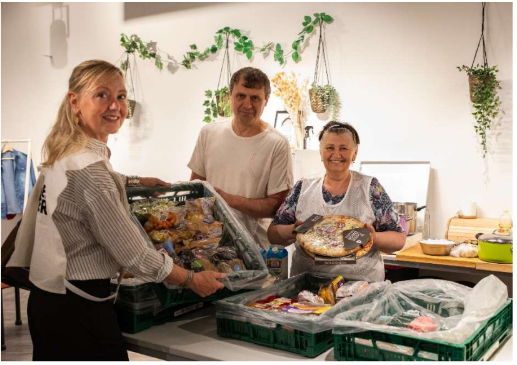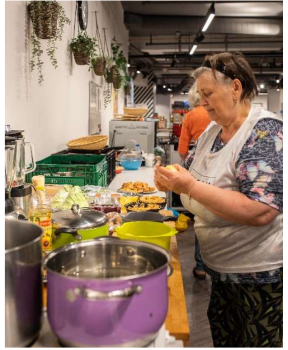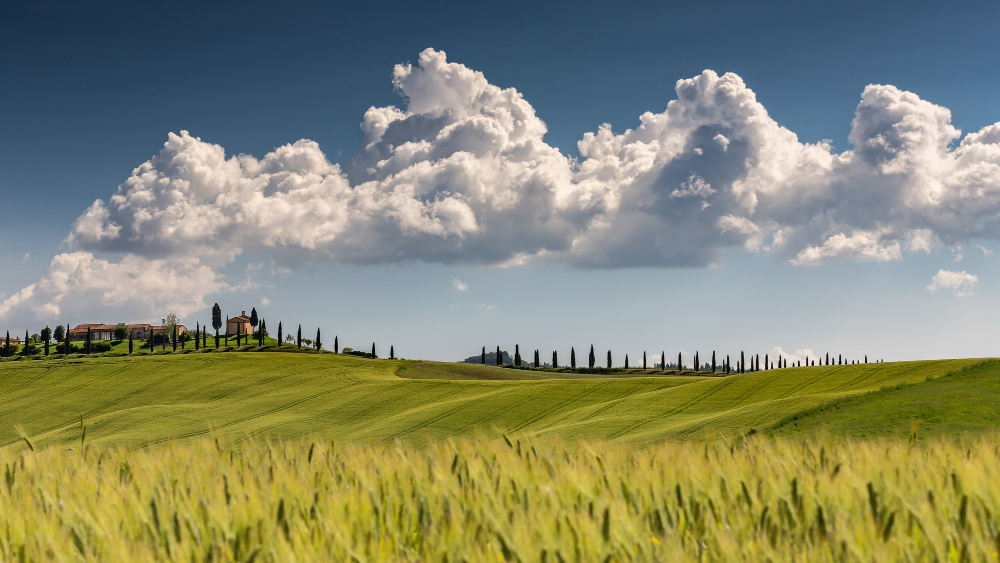Globally, we still throw away a third of all the food we grow. “Such a shame,” says Dieuwertje
Almeida of Haarlem Food Future (HFF). The foundation has been committed to reducing food waste
in Haarlem for several years.
‘We rescue food that would otherwise go into the container at supermarkets and take it to various
community centers. Before corona we were at 4,000 rescued meals per month, now there are more
than 10,000. Together we can make the impact in Haarlem even greater!’
Every day of the week – except Sunday – 12 volunteer food rescuers collect crates full of food and
drinks from various supermarkets in Haarlem and the surrounding area. With their recognizable HFF
vests, they are now a familiar face. Dieuwertje: Early in the morning, the crates are sent to local
destinations such as Hof van Eden and Ecosol, where they cook together with them. In community
centers such as De Tulp and Pluspunt they distribute the content to people who can use it. We now
help a total of 10 community centers.”
Crate full of herb butter
“The contents of the crates vary enormously. Sometimes it’s half a crate of herb butter, yesterday’s
bread and lots of oranges. Other times it’s potatoes and cauliflower. If a vegetable is slightly dented
or a potato is missing from a bag, then it is already taken off the shelves. But they are very happy
with that in the community centers; you can cook a nice meal with that.”

Rescued food connects
Dieuwertje says that with the arrival of the Ukrainian refugees, saving food received a new impetus.
“We wanted to do something for them. Several supermarkets soon cooperated and we were able to
deliver excellent Best Before (THT) food to the Ukrainian Rasom foundation twice a week. From the
basement under the former V&D in the city center, the smell of homemade soup greets you on
Saturday mornings. Many lunches have also been made with it in the Badhuis in the Leidsebuurt. It is
nice to see that rescued food connects people. Not only refugees, but also (older) people who are
lonely or not well off. Cooking with a group or eating apple pie made from rescued apples brings
people together. This is how we strengthen the neighborhood function!”
Good for the climate
“Moreover, it is such a waste of CO2 to throw away good food. Globally, all wasted food accounts for
8% of total emissions. By making people aware of this and getting them moving, you can quickly do a
lot of good without new technology. For me, saving food is a way to contribute to climate urgency. I
have such an enormous need to push back.
Together with the municipality
With food that would otherwise go into the container, HFF helps intensively to make the food system in our city circular.“To this end, we work closely with the municipality, where this is also high on the agenda. For example, via them we are involved in the European Cities 2030 project, where reducing food waste is an important theme. Through subsidies we can make our network and therefore our influence much greater.
The fact that more and more supermarkets, social initiatives and volunteers are joining shows that this is really happening in Haarlem. We want to further expand that positive feeling in the coming years. How cool would it be if our city soon leads the way in reducing food waste.”
You can participate too
In the Netherlands we still throw away around 33 kilos of food per person every year. To reduce this,
a few tips:
Become a food rescuer at HFF. You can register via info@haarlemfoodfuture.nl
Check in the supermarket if you can buy products that are close to their expiration date with
a 35% discount
Make a shopping list so that you actually buy the products you need
Weigh rice and/or pasta or other food per person while cooking. This way you are left with
nothing
Also useful: the Verspillingsvrijcoach app via Samentegenvoedingvoeding.nl
